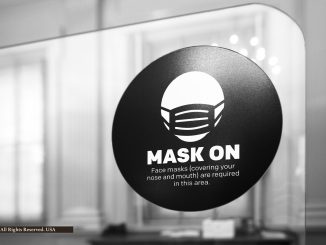
From the Editor—
In the 1960s Batman TV series, the worst thing that could happen in any plot line was for the villain to reveal the heroes’ secret identities. Cue memories of Adam West, unmistakable intonation, laying out all that would be lost in his value as a crime fighter with such a revelation. [1,2]
That had certainly started to change with the second =Batman motion picture starring Michael Keaton. And while audiences might not have been sure where things would go in the Marvel Universe when Tony Stark first announced that he was Iron Man, that question was not to go long without resolution. In fact, the tide had so radically turned thereafter that those familiar with the original comics readily saw that the Super Hero Registration Act couldn’t work for Captain America: Civil War without significant revision. [3,4,5,6]
I don’t think it’s a stretch to believe that the actors had more than a little to do with this “creative direction.” You may know the difference between George Reeves and Christopher Reeve, but who played Spider-Man, when? Not so much. The actors want you to know. They want to be revealed. [7,8,9]
Surely you can empathize. It’s human nature. You’re out saving the world, righting wrongs, doing good. If there was no chance it would put your Aunt Harriet or Aunt May in mortal jeopardy, wouldn’t you want everyone to know it was you who did the good deeds? [10,11]
Journalists face the same temptations. And nowhere is it harder to keep our masks in place than in political reporting.
Let’s be clear: No one is free of bias. No one. Additionallly, we’re not going to get hung up on the “mask” analogy here. I’m not talking about hiding things; I’m talking about taking all reasonable measures to guard against expressing any of those biases in one’s reporting.
As someone who’s extensively researched wristwatch selections associated with the fictional James Bond character, I’m often called upon to present on my findings. Are there certain models that I wear more than others, some models that I don’t wear at all? Absolutely. Do I wear a watch when I present? Indeed, I do — and only one at a time. But I doubt anyone closer than front-row seating could identify my watch, nor would anyone in the audience have a thought that I’d advocated one choice over another. To do otherwise would paint me as not just disrespectful to those who’ve come to learn from me, but also as a poor messenger. [12]
Any Tom, Dick, or Harry can tell you what to think. It takes real skill and discipline to find and then present information in a way that equips you to decide for yourself.
Moreover, the watch that fits my wrist, my budget, and my lifestyle isn’t likely a perfect match to your criteria.
The same is true with voting, although I’d argue that Americans who exercise the franchise are engaged in one of the most important civic functions there is. To suggest that I know better as a journalist, presuming to “endorse” this issue or that, one candidate or another, is the ridiculous. Parents will weigh their votes from their perspective as parents, business owners as business owners, renters as renters.
Having taken the time to facilitate candidate participation in Saline Journal to provide an added Saline perspective on their races, did I have ideas about which answers were better? Did I learn things about campaign organization, individuals’ personalities, and things they were willing to say outside earshot of the general public? I did. But in order to share any of that, I’d have to sacrifice balance against my interactions with the other side. I think that would also suggest a certain lack of faith in the value of the questions I’d put out in the first place.
Unfortunately, I think too many news outlets reveal their own disinterest in developing such stories, rather preferring to get on to telling you what you need to think, need to do. Cable TV and networks, online and on newsprint. But ask yourself, were their endorsements really a surprise to you? Or did they simply follow the biases you’d already intuited from their reporting?
Living neither in the DC nor Marvel Universe, but in the real world, I have no ego need to tell you how I’m going to vote on any of the questions tomorrow. And based on the exceptionally high volume of eMail I’ve gotten in the wake of Saline Journal coverage, I am pleased to report that no one thus far has been able to tell how I’m going to vote from my writing.
That’s as it should be.
Resources
- “Batman” IMDb.
- “Batman: The Movie (1966)” IMDb.
- “Batman Returns (1992)” IMDb.
- “Iron Man (2008)” IMDb.
- “The Super Hero Registration Act – Civil War – Marvel 101” Marvel Entertainment (May 24, 2016) YouTube.
- “Captain America: Civil War (2016)” IMDb.
- “George Reeves (1914-1959)” IMDb.
- “Christopher Reeve (1952-2004)” IMDb.
- “Peter Parker: Spider-Man” Marvel.
- “Aunt Harriet” Bat-Mania.
- “Spider-Man: Homecoming‘s Marisa Tomei Was ‘Horrified’ to Learn How Elderly Aunt May Was” Julie Miller (July 7, 2017) Vanity Fair.
- “Watches kept James Bond on time and fashionable” Barbara Miller Beem (January 1, 2018) Antique Week.



